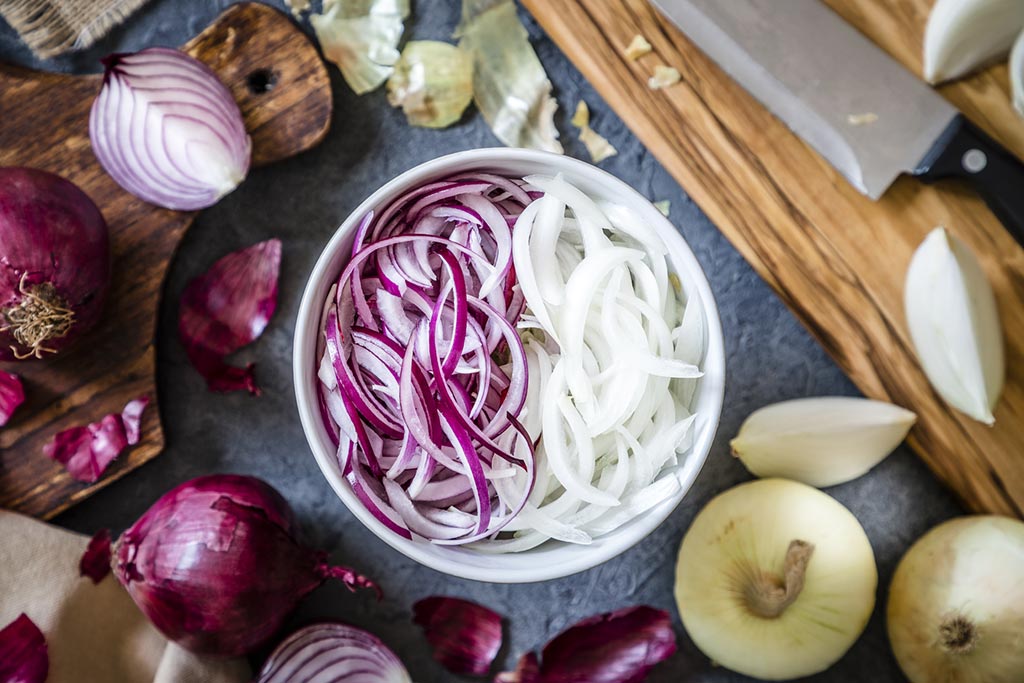Onions are rich in bioactive compounds and have been found to help prevent various chronic diseases, including obesity. A systematic review and meta-analysis of five clinical trials (using onions and onion skin) found body weight, body mass index (BMI), waist circumference and triglyceride levels were all significantly reduced in those who consumed onions compared to placebo groups who did not.
Onions (including both bulb and peel) appear to be a promising natural agent for the prevention of obesity, with supportive in vitro and in vivo evidence. The objective of this study was to perform a meta-analysis and systematic review of the anti-obesity health benefits of onions in well-designed randomised-controlled clinical trials involving a total of 147 subjects across five studies.
Three studies into the anti-obesity effect of onions reported a statistically significant decrease in body weight and BMI in the onion-supplemented group, and two reported a decrease in waist circumference. In all studies, statistically significant reductions in body weight and waist circumference were confirmed, compared with the placebo group.
The lipid-lowering effect of onion was also analysed, and there was a statistically significant reduction in triglycerides compared to the placebo group.
It is speculated that the key component that reduces blood triglycerides is the onion peel. Onion peels are known to contain high levels of quercetin, a type of flavonoid that has preventive effects on chronic metabolic diseases due to its high antioxidant activity, inhibition of lipid accumulation, lipid metabolism regulation and anti-inflammatory effects. However, in this study, there were no significant changes in other blood lipid parameters except for triglycerides, so this should be interpreted with caution.
In addition, since only trials conducted on obese subjects were selected for this study, additional analysis targeting subjects with dyslipidemia is warranted to verify the effect on blood lipids.
This study found convincing evidence that onions are effective not only in reducing body weight and body fat, but also in reducing blood triglyceride levels, and this effect was particularly pronounced with onion peels which have a high quercetin content.
Practice tips
- Adding onions to everyday meals and snacks can help maintain a healthy body weight and reduce the risk of chronic disease
- Reduce food waste and maximise the benefits of onion peels by using them as a garnish, drying them in an oven and crushing to make onion salt, or adding to stews, soups and stocks for a delicious onion flavour
- Quercetin is metabolised in 24 hours, so it’s necessary to consume quercetin daily to maintain the body’s antioxidant capacity
- Sunlight boosts quercetin in the outer layers of an onion, so don’t over-peel your onions
Reference
Chung MY, Hwang JT, Park SH. Anti-obesity effects of onion (Allium cepa) in subjects with obesity: Systematic review and meta-analysis. Food Sci Nutr. 2023 May 16;11(8):4409-4418. doi: 10.1002/fsn3.3426. PMID: 37576046; PMCID: PMC10420769.

